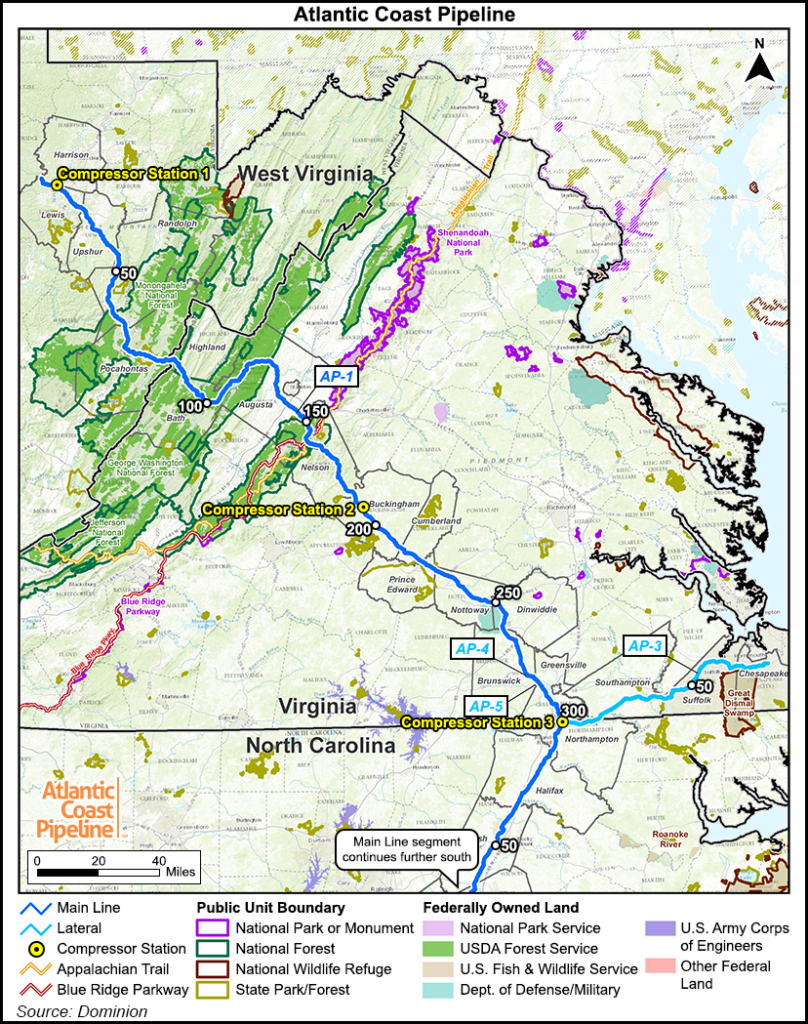Shale Daily | E&P | NGI All News Access | NGI The Weekly Gas Market Report
ACP Halts West Virginia Water Crossings After Court Stays Key Permit
The U.S. Court of Appeals for the Fourth Circuit has stayed the Atlantic Coast Pipeline’s (ACP) Nationwide Permit (NWP) 12, forcing the company to temporarily suspend water crossings in West Virginia.

The court stayed the permit late Wednesday pending its review of a challenge brought by Sierra Club, West Virginia Rivers Coalition, Appalachian Voices and other environmental groups. The organizations petitioned the court to review the permit over the summer and asked for the stay last week.
They argue that the project can’t meet certain conditions of the permit intended to prevent construction activities from stopping fish migration. Specifically, the Sierra Club said ACP plans to dam the Greenbrier River in West Virginia for three days and added that the groups asked the court to stay the permit before water crossing work in the state got underway.
The NWP is issued by the U.S. Army Corps of Engineers under Section 404 of the Clean Water Act. It allows contractors to trench through the bottom of streams and rivers.
ACP spokesman Aaron Ruby said the Army Corps has confirmed that the project’s plans are in compliance with the permit. He added that the company is prepared to “vigorously defend” the NWP 12 in the courts.
“We don’t believe this will cause any significant delay because it only impacts” water crossings in West Virginia, Ruby said. He added that the stay does not affect any other construction work along the 600-mile route in West Virginia, Virginia and North Carolina.
The similarly-routed Mountain Valley Pipeline (MVP) has already faced the same challenge. The Fourth Circuit earlier this year stayed its NWP 12 pending a review that eventually led the court to vacate the permit altogether.
That decision prompted the Army Corps to revoke all of MVP’s authorizations under the permit, and by last month it had lost the ability to make all water crossings during construction. Environmental groups also argued in that case that MVP could not meet special conditions included in the permit. MVP expects a new NWP 12 by early next year.
Both projects have pushed parts or all of their in-service dates back and increased their budgets due to regulatory delays and legal challenges.
ACP would carry 1.5 Bcf/d of Appalachian natural gas from West Virginia, through Virginia and North Carolina to Southeast markets. The 2 Bcf/d MVP would follow a similar path to serve the Southeast.
© 2024 Natural Gas Intelligence. All rights reserved.
ISSN © 2577-9877 | ISSN © 1532-1266 | ISSN © 2158-8023 |
